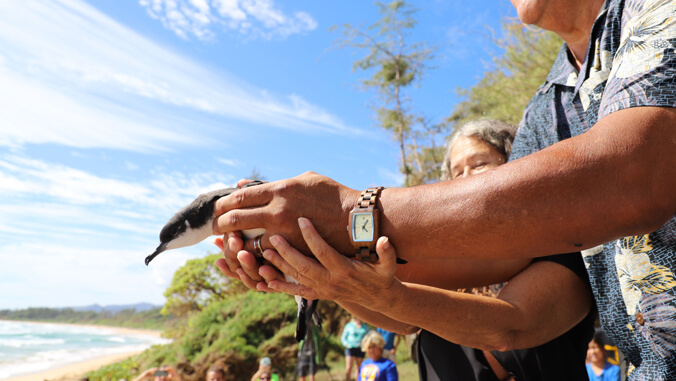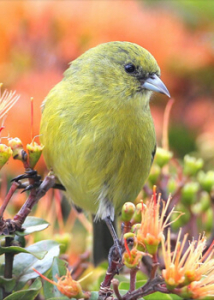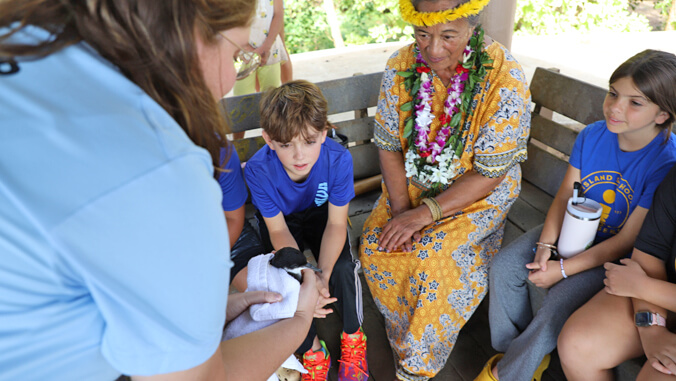
The University of Hawaiʻi at Mānoa, in partnership with state and local organizations, will establish a joint facility for two major bird conservation programs on Kauaʻi, following the state Board of Land and Natural Resources’ approval of a land transfer on January 10.

The 25-year, no-cost lease grants UH Mānoa’s Pacific Cooperative Studies Unit (PCSU), housed in the College of Natural Sciences, use of a former dog pound site in Hanapēpē. The facility will bring together the Kauaʻi Forest Bird Recovery Project and the Kauaʻi Endangered Seabird Recovery Project under one roof.
“Our mission is to protect and restore Hawaiʻi’s native species, ecosystems, and cultural resources,” said PCSU Director Shaya Honarvar. “The forest bird and seabird recovery projects on Kauaʻi epitomize this mission by combining research and conservation of federally and state protected native birds; some of which would already be extinct without the intervention of the project’s talented and dedicated teams.”
Crucial timing
The facility comes at a critical time as the forest bird project has doubled its budget and staff in response to declining bird populations and advancements in addressing mosquito-borne diseases. The shared space will also provide the seabird program, previously operating from a shipping container, with a permanent home.
Lisa “Cali” Crampton, who leads the Kauaʻi Forest Bird Recovery Project, said the combined facility will enhance collaboration between the programs.
“This allows us to share staff knowledge and skills more easily,” Crampton said. “A major synergy will be having space for cross-training, not only with our seabird partners, but also with our DLNR (Department of Land and Natural Resources) colleagues. There are many overlaps between various types of avian research and conservation, so being together provides great learning opportunities.”


